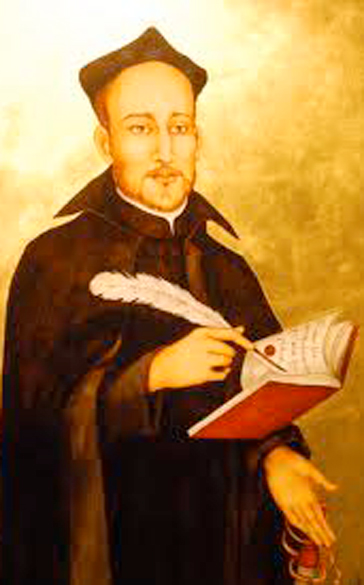Jesuits' uniqueness
- Details
- Published on Friday, 22 March 2013 12:24
- Written by Allyn Hunt
 Suddenly it’s Jesuit season. A surprise for most of the world’s 1.2 billion Catholics and a puzzle for non-Catholics. The reason for the surprise within the Church is the fact, the media says, that in the Church’s 2,000-year history, no Jesuit has ever even been truly considered a candidate to take St. Peter’s throne. Actually, the Jesuits didn’t exist until 1534, and didn’t receive papal approval until 1540 (Pope Paul III – 1418-1549). Which means none were ever chosen in the 473 years of the order’s existence. That’s due in great part because Jesuits have actively shunned ambitions, or lobbying for such higher positions as bishops, etc.
Suddenly it’s Jesuit season. A surprise for most of the world’s 1.2 billion Catholics and a puzzle for non-Catholics. The reason for the surprise within the Church is the fact, the media says, that in the Church’s 2,000-year history, no Jesuit has ever even been truly considered a candidate to take St. Peter’s throne. Actually, the Jesuits didn’t exist until 1534, and didn’t receive papal approval until 1540 (Pope Paul III – 1418-1549). Which means none were ever chosen in the 473 years of the order’s existence. That’s due in great part because Jesuits have actively shunned ambitions, or lobbying for such higher positions as bishops, etc.
Now Pope Frank, as someone, presumably a non-Catholic, called Catholicism’s new leader, has placed the world’s largest male religious order in print and electronic headlines. The father of what’s long been known as “Soldiers of Christ” and “God’s Foot Soldiers” would be puzzled, amused, possibly aghast. That man, a Basque, was born “before October 23, 1491 ... it is deducted,” says a much quoted historian. He was named Iñigo Loioakoa (Basque), and is known today as Ignacio de Loyola (Spanish).
As a young knight, Loyola was attracted to all things military, and, beginning as a swaggering young man of 17, seems to have had a steely inclination for sword play. Dueling was something he engaged in until the events of 1521. He was seriously wounded – a leg shattered by a cannon ball – in the Battle of Pamplona during the the Italian-Spanish War of 1521-1526. His long recovery, due to several operations endured without anesthetics, prompted him to assess his much-changed future. He switched from reading about El Cid and the knights of Camelot, to more contemplative fare. The men he now found interesting were bold religious figures: Jesus, Ludolph of Saxony’s Vita Christi, which he said changed his life, and texts on the lives of the saints. He especially admired the quiet bravery of St. Francis of Assisi. This resulted in a spiritual, and practical, conversion from a life of a soldier to one of devotion, which, in turn, lead Loyola to embrace the vocation of a priest. He joined the Franciscan Order and was soon studying at the University of Paris. There he joined six other students, meeting in the crypt of St. Denis, August 24, 1534, to form a group committed to hospital and missionary work wherever the Pope might direct. They called themselves “the Company of Jesus.” The word company, used in the military sense, implying an infantry unit as well as stern discipline.






















